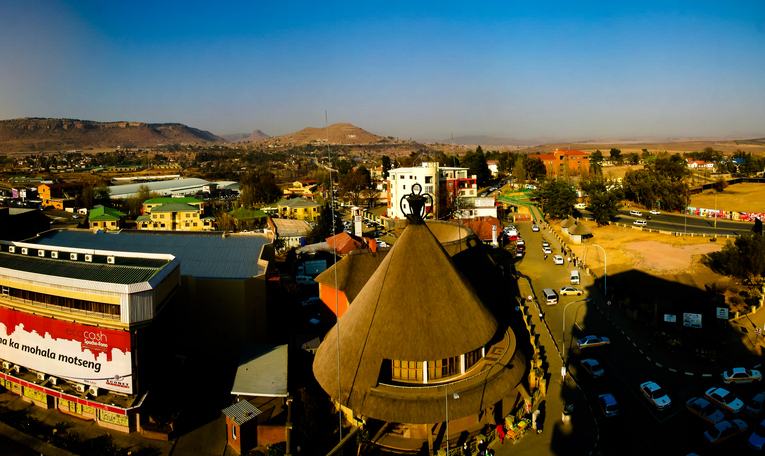The reimposition of protectionist trade measures by the United States under President Donald Trump marked a significant shift in global economic policy, with far-reaching consequences for developing nations. This article explores the legal and economic implications of such tariffs on Lesotho, a small, landlocked country that has long relied on preferential access to U.S. markets under instruments like the African Growth and Opportunity Act (AGOA). The analysis considers the erosion of multilateralism, the threats to Lesotho’s textile and manufacturing sectors, and the possible avenues of recourse under international trade law.
For over two decades, Lesotho’s integration into global trade has largely been facilitated through preferential agreements such as AGOA. These instruments have enabled it to establish a thriving textile and apparel industry, with the United States as its primary export destination. However, the resurgence of U.S. protectionism under the Trump administration, including the imposition of unilateral tariffs on a wide range of imports, has raised alarm across the Global South. While AGOA remains in place, the political rhetoric and legal precedent set during this era pose a persistent threat to Lesotho’s market access and trade stability.
The Legal Architecture of AGOA and Lesotho’s Trade Dependence
AGOA, enacted in 2000, offers eligible Sub-Saharan African countries duty-free access to the U.S. market for over 6,500 products. Lesotho’s apparel exports comprising over 80% of its total exports to the U.S. have benefited immensely from this regime. However, AGOA eligibility is contingent on compliance with U.S. determined standards relating to the rule of law, labour rights, and market openness. This discretionary power exposes beneficiary states to abrupt policy reversals.
The Trump administration’s broader tariff strategy most notably, its invocation of Section 232 of the Trade Expansion Act of 1962 to impose tariffs on steel and aluminium, and Section 301 actions targeting China signals a willingness to bypass multilateral frameworks like the World Trade Organization (WTO). The erosion of predictability and the chilling effect on trade liberalisation are palpable in Lesotho.
Impacts on Lesotho’s Textile Sector
Lesotho’s textile industry employs more than 35,000 workers, most of them women. The sector’s viability hinges on stable, preferential access to the U.S. market. Trump-era tariffs and threats to dismantle AGOA raised uncertainty among foreign investors and factory operators in Lesotho’s industrial zones. Several manufacturers began hedging against U.S. policy unpredictability by diversifying operations to countries with more stable trade agreements.
Furthermore, the growing calls in U.S. domestic politics to “reshore” manufacturing under the banner of economic nationalism present a long-term structural threat. Should AGOA be repealed, Lesotho’s garments would face MFN (Most Favoured Nation) tariffs ranging from 8.5% to 32%, rendering its exports less competitive and potentially devastating its economy.
The Challenge of Legal Recourse in Asymmetrical Trade Relations
Lesotho’s recourse options are constrained by its limited leverage in bilateral negotiations and the weakened dispute resolution framework within the WTO. While WTO rules prohibit arbitrary and discriminatory tariffs, the U.S. has effectively paralysed the WTO Appellate Body, impeding legal redress for smaller states. In the absence of binding third-party adjudication, countries like Lesotho must navigate a trade system increasingly shaped by power dynamics rather than legal norms.
Moreover, although AGOA provides for annual reviews and some transparency mechanisms, it does not afford beneficiary countries a formal dispute resolution process. The executive discretion built into AGOA thus raises questions about its compliance with the WTO’s Enabling Clause and the requirement of non-discriminatory preferential treatment.
Strategic Responses and the Case for Regionalism
In light of these challenges, Lesotho must recalibrate its trade strategy. This includes strengthening regional value chains within the African Continental Free Trade Area (AfCFTA), which offers a more stable and legally predictable environment. Moreover, domestic industrial policy must be refocused on diversification, technological upgrading, and reducing dependence on a single market.
Legal reforms should also include enhanced trade remedy mechanisms and bilateral engagement capacity to preempt and respond to sudden policy shifts by trading partners. Lesotho must engage with allies in the WTO to restore the appellate function and advocate for binding dispute resolution that protects smaller economies.
Conclusion
The legacy of Trump-era tariffs extends beyond their economic impact. They have reshaped global trade law by undermining multilateralism and empowering executive discretion. For Lesotho, the implications are existential. While AGOA remains in place for now, its future is uncertain. Lesotho’s legal and economic resilience will depend on its ability to adapt to a more volatile trade environment and to assert its interests in increasingly asymmetrical global trade relations.
--
Read the original publication at Mayet & Associates




